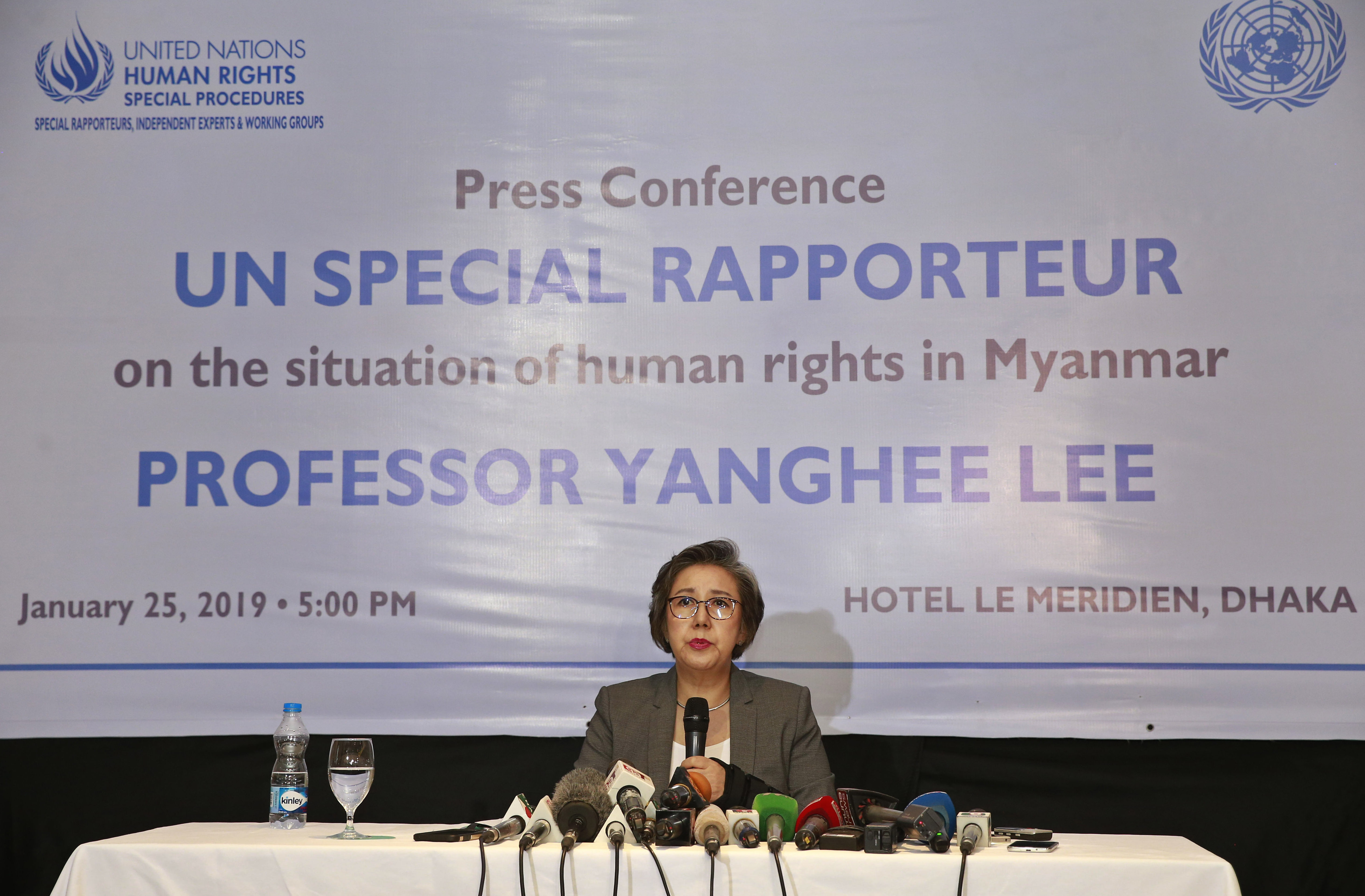
UN envoy: No prospect Rohingya refugees can go home soon
DHAKA, Bangladesh (AP) — A U.N. human rights envoy said that hundreds of thousands of Rohingya Muslim refugees won’t be able to return to Myanmar soon because of threats to their safety in the Buddhist-majority nation.
Myanmar has been criticized by global rights groups and many nations for state-sponsored violence against ethnic minorities.
Yanghee Lee, the U.N. special rapporteur on human rights in Myanmar, on Friday also criticized India and Saudi Arabia for mistreatment of the Rohingya in those countries.
Lee spent 10 days in Thailand and Bangladesh, speaking to refugees living in Bangladesh, authorities, U.N. agencies and international experts. More than 700,000 Rohingya refugees have fled into Bangladesh since late August 2017.
“It is clear that Rohingya refugees in Bangladesh cannot return to Myanmar in the near future,” she said.
She said violence against the Rohingya by the Myanmar army in Rakhine state that prompted them to flee to neighboring Bangladesh “bear the hallmarks of genocide.” Myanmar has repeatedly turned down her request for allowing her to visit the country.
Myanmar has rejected all the allegations that any crimes against humanity and genocide took place. Global rights groups have called the country’s top military officials to be tried for their alleged roles in the killing and rapes of Rohingya.
Lee said the violence against other minority groups must also end in Myanmar.
“Its campaign of violence against ethnic minorities, including the Rohingya, the Kayin, the Kachin and the Shan, must end,” she said.
She added: “There must be accountability for the campaign of ethnic cleansing and possible genocide against the Rohingya, as well as the war crimes and crimes against humanity perpetrated against ethnic minorities around the country.”
Lee told journalists she was disturbed by reports of new violence in Rakhine state and she accused Myanmar of failing to create a peaceful environment so the refugees could return from Bangladesh.
“The campaign of violence against the Rohingya continues, with the security forces slowly bleeding the remaining Rohingya population and continuing to force them to flee to Bangladesh,” she said.
Lee said she was dismayed by Saudi Arabia’s recent deportation of 13 Rohingya to Bangladesh, where they have been arrested and charged with forging the passports that they used to travel to Saudi Arabia.
About 1,300 Rohingya have recently arrived in Bangladesh from India, Bangladesh officials said earlier this week. Another 61 Rohingya, including many children, were arrested earlier this week by India in its northeastern states of Assam and Tripura. India rejected repeated U.N. calls against a decision by India to send at least 40,000 Rohingya back to Myanmar.
Bangladesh attempted to start repatriation in November last year under a deal with Myanmar despite reservations by the U.N. and other global human rights groups that conditions were not safe for Rohingya in Myanmar, which said it was ready to receive them. Bangladesh subsequently postponed the process.
The exodus of Rohingya began after Myanmar security forces launched a brutal crackdown following attacks by an insurgent group on guard posts in late August in 2017. The scale, organization and ferocity of the crackdown led the U.N. and several governments to accuse Myanmar of ethnic cleansing and genocide. Bangladesh’s Prime Minister Sheikh Hasina had ordered border guards to open the border allowing them to get in.
Most people in Myanmar do not accept that the Rohingya Muslims are a native ethnic group, calling them as “Bengalis” who entered from Bangladesh centuries ago. Nearly all have been denied citizenship since 1982, as well as access to education and hospitals.
The Western Journal has not reviewed this Associated Press story prior to publication. Therefore, it may contain editorial bias or may in some other way not meet our normal editorial standards. It is provided to our readers as a service from The Western Journal.
Truth and Accuracy
We are committed to truth and accuracy in all of our journalism. Read our editorial standards.
Advertise with The Western Journal and reach millions of highly engaged readers, while supporting our work. Advertise Today.












